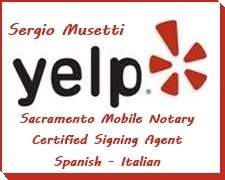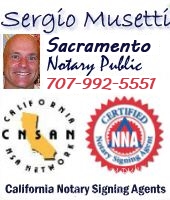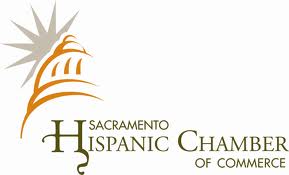Certified Loan Signing Agent - Spanish Translation - Apostille Service in California - Fingerprinting
Notarize your documents at your office or any location

Acknowledge:
To admit the existence or truth of a statement and accept responsibility.
Acknowledgment:
A formal declaration made to authoritative witness by the person who executed the document that it was freely executed.
A formal declaration before a public official that one has signed a document. A Notary Public acknowledges the person's signature on the document.
Acknowledgment, certificate of:
A written statement, affixed to an agreement, signed and sealed by anauthorized official that states in a form, usually prescribed by law, that the official took the acknowledgment of the person who signed the agreement. Download California Acknowledgment.
Administer:
To give or apply in a formal way.
Affiant:
One who makes a swearing statement in an affidavit.
Affidavit:
A written declaration made under oath before a notary public or other authorized officer. A written sworn statement made before an authorized official.
Affirmation:
To declare positively or firmly; maintain to be true. An affirmation replaces "swearing before God".
Affix:
To secure (an object) to another; to attach; add to.
Authentication document for Hague Convention members. The apostille itself is a stamp or printed form consisting of 10 numbered standard fields. On the top is the text APOSTILLE, under which the text Convention de La Haye du 5 octobre 1961 (English: Hague Convention of 5 October 1961) is placed. Additional authentication required for international acceptance of notarized documents including court documents, adoption papers, affidavits, administrative documents, civil status documents, birth certificates, contracts, death certificates, notarial acts, deeds, diplomas and degrees, divorce decrees, incorporation papers, marriage certificates, patent applications, official certificates which are placed on documents signed by persons in their private capacity, powers of attorney, school transcripts. Instituted by The Hague Convention Abolishing The Requirements Of Legalization For Foreign Public Documents of 1961, its objective is obviate "the requirements of diplomatic or consular legalization" and thus replace the cumbersome 'chain authentication method' that called for verification by multiple authorities.
a·pos·til [uh-pos-til] Show IPA
noun
a marginal annotation or note.
Also, a·pos·tille.
Origin:
1520–30; < Middle French apostille, noun derivative of apostiller to add marginal notes, derivative, with a- a-5 , of Medieval Latin postilla marginal note, perhaps from the phrase post illa ( verba ) after these (words), with illa construed as the Latin diminutive suffix
Appointment:
The act of designating for an office or position.
Appraisal: An opinion as to the fair market value of property.
Attest:
To affirm to be correct, true, or genuine; corroborate.
Authenticate:
To prove or verify as genuine.
Backruptcy: Bankruptcy is a legal status of a person or other entity that cannot repay the debts it owes to creditors. In most jurisdictions, bankruptcy is imposed by a court order, often initiated by the debtor.
Bankruptcy is not the only legal status that an insolvent person or other entity may have, and the term bankruptcy is therefore not a synonym for insolvency. In some countries, including the United Kingdom, bankruptcy is limited to individuals, and other forms of insolvency proceedings (such as liquidation and administration) are applied to companies. In the United States, bankruptcy is applied more broadly to formal insolvency proceedings.
California Mobile Notary Network: Is a select group of dedicated, independent, professional notaries public providing the highest level of mobile document signing services throughout California.
Certificate:
1) A document testifying to a fact, qualification, or promise; or 2) A written statement legally authenticated.
Certified Copy:
A document certified by a notary to be a true and correct copy of the original. It has some similarities to a notarized copy, which is a form used in some countries, and particularly in some States in the USA. A notarized copy is signed by a notary public (not to be confused with a notary in a civil law country - see Civil law notary). Wikipedia.
Civil Action:
Not a criminal action. A lawsuit for the purpose of protection of private (not public) rights to include compensation for their violation.
Civil Liability:
The responsibility and obligation to make compensation to another person for damages caused by improper performance of duties and acts.
Closing: A meeting of all parties involved in a property transaction during which pertinent documents are signed and transferred, and funds are distributed. Closing Overview
Closing Agent:
Closing agents can be the lender, escrow, title, closing service companies, etc. A closing agent actually performs the closing process, which includes disbursement of funds, the issuing of title insurance, if applicable and recording of the deed. In addition, the closing agent, if a notary, can also notarize the applicable documents in the loan package. A closing agent is a person or business that is charged with the coordination of a variety of activities necessary for completing the sale of a house or other type of real-estate property. It is the job of the closing agent to ensure that all documents and records are completed properly. He or she also makes sure the related funds are properly disbursed. Essentially, a closing agent acts as a custodian, a service that can only be performed by a neutral party. Wisegeek.
Commercial Paper:
1) Any of various short-term negotiable papers originating in business transactions; or 2) A document whose purpose is to transfer money such as a check, bill of exchange or draft.
Commission:
A document describing the notary's appointment and term of office.
Consumer Financial Protection Bureau (CFPB). Functions: Write rules, supervise companies, and enforce federal consumer financial protection laws, Restrict unfair, deceptive, or abusive acts or practices; Take consumer complaints; Promote financial education; Research consumer behavior
Monitor financial markets for new risks to consumers; Enforce laws that outlaw discrimination and other unfair treatment in consumer finance
Credible Witness:
A believable witness worthy of confidence. Creates a chain of personally known individuals from the notary public to the signer of a document.
CNSA:
The acronym CNSA means "Certified Notary Signing Agent". The basic definition of a CNSA is a Notary Public who has been trained by the Notary Learning Center (NLC) to handle the execution and notarization of mortgage, refinancing and real estate transactions.
Dispose:
To store in an orderly manner. In relation to notarial journal, to store for ten years.
Duress:
Constraint by threat, coercion.
Embosser:
A pliers-like device, that when squeezed together with paper between the jaws, makes raised areas and indentations on paper. Used as a protection device. Not an official notary seal; but may be used in addition to the official notary seal.
Errors and Omission Insurance:
An insurance policy designed for the protection of the notary when held liable for honest mistakes. The insurance policy absorbs the notary's costs and financial liabilities up to an agreed limit.
Escrow Officer: Is a person or organization (attorney, title company, escrow company) holding documents and funds in a transfer of real property.
Felony:
A crime more serious than a misdemeanor and punishable by a more stringent sentence.
Identity Theft: Identity theft is a form of stealing someone's identity in which someone pretends to be someone else by assuming that person's identity, typically in order to access resources or obtain credit and other benefits in that person's name. The victim of identity theft (here meaning the person whose identity has been assumed by the identity thief) can suffer adverse consequences if they are held accountable for the perpetrator's actions. 33333
Gramm-Leach-Bliley Act (GLBA)
The Gramm-Leach-Bliley Act requires financial institutions – companies that offer consumers financial products or services like loans, financial or investment advice, or insurance – to explain their information-sharing practices to their customers and to safeguard sensitive data.
Journal of Notarial Acts:
Notarial journal prescribed by law to record notarial acts.
Jurat:
An affidavit declaring when, where, and before whom it was sworn.
Jurisdiction/Venue:
The locality where a cause of action occurs. The State and County where a notarization takes place.
Loose Certificate:
A document with notarial wording that is separate from, and attached to, the document being notarized. It is used when no wording is provided on the document, when that provided wording does not comply with the state's requirements, when there is no room for the notary seal on the document, or when a preprinted certificate has already been used by another notary in the case of multiple signers.
Loan Consultant : A specialist whose job is to help you decide which Home Financing Solution is right for you. They can help you complete an application over the phone and begin the Loan Approval process. When possible, they will conditionally approve your loan over the telephone and forward it to a Loan Counselor for further processing.
L.S. (locus sigilli):
Indicates where the official notary seal imprint is to be placed. Latin term Locus Sigilli means "place of the seal".
Misconduct:
Behavior not conforming to prevailing standards or laws.
Misdemeanor:
An offense of lesser gravity than a felony for which punishment may be a fine or imprisonment.
Notary Journal:
An official record book of notarizations performed by a notary. Required by law in the many states and officially recommended in most states. All entries must be in chronological order and have all required fields completed at the time of notarization. If must be kept under the direct and exclusive control of the notary and kept in locked and/or secured area.
Notary Public:
A person commissioned by a state government to serve the public as an impartial witness with duties specified by law. The notary has the power to witness the signing of documents and to administer oaths.
Notary Seal:
An official stamp or embosser used by a notary to seal notarizations. It must be kept under the direct and exclusive control of the notary.
A Notary Signing Agent (NSA) is a Notary specifically trained to facilitate mortgage signings or oversee loan signings for lenders, title companies and signing services. Certified NSA can explain complex mortgage signing documents.
Oath:
A statement by a person who asserts it to be true, calling upon God as witness.
Official Notary Seal:
An official stamp or embosser used by a notary to seal notarizations. It must be kept under the direct and exclusive control of the notary.
Personally Known:
Familiarity with an individual resulting from interactions with that individual over a period of time sufficient to eliminate every reasonable doubt that the individual has the identity claimed.
Power of Attorney:
A legal instrument authorizing one to act as another's agent or attorney.
Resignation:
Written statement that one is resigning a position or office.
Revoke:
To cancel or rescind.
S.S. or SCT:
Indicates where the notarization is performed. Latin term Silicet means "in particular" or "namely". Commonly referred to as jurisdiction.
Satisfactory Evidence:
Sufficient means of identifying a signer which meets criteria set forth by law.
Sanctions:
The penalty for noncompliance specified in a law or decree.
Signing Agent:
A Notary Public who has been trained by the Notary Learning Center (NLC) to handle the execution and notarization of mortgage, refinancing and real estate transactions.
Signing Service:
A company who subcontracts signing appointments to "Loan Document Signers" (Notary Public) for signing of loan documents and notarization. The sole purpose of this company is to act as a "Go-between" company, between the client and the notary public.
Subscribe:
To sign one's name in attestation, testimony, or consent.
Subscribing Witness:
A person who appears before the notary on behalf of the principal. The subscribing witness must have been requested and/or authorized by the principal to get the document notarized, must swear under oath or affirmation that they either saw the principal sign the document or heard the principal acknowledge that they signed the document, must sign the document before appearing in from of the notary or in the notary's presence, must establish identity through personal knowledge of the notary or through the oath or affirmation of a credible witness known to the subscribing witness and the notary, and must sign the notary's journal.
Suspend:
To cause to stop for a period; interrupt.
Swear/Sworn:
To make a solemn promise; to vow, usually before God.
Testator: who dies leaving a will; testator
is a person who has written and executed a last will and testament that is in effect at the time of his/her death. Probate Code.
Testimonium clause:
At the end of many documents and certificates that follows the form "witness my hand and seal" or some variation thereof.
Venue / Jurisdiction:
The locality where a cause of action occurs. The State and County where a notarization takes place.
Verification:
A confirmation of the truth of a theory or fact.
Waiver of Fees:
A statement which waives or gives up the right to charge for notarial services.
Witness:
A person who watches an action take place.
References: Notary Learning Center |






